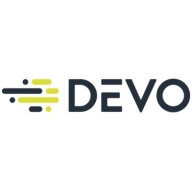

PagerDuty Operations Cloud and Devo compete in the field of IT incident management and security analytics. Devo appears to have the upper hand due to its comprehensive features and powerful data analytics.
Features: PagerDuty Operations Cloud offers a robust alerting system, real-time collaboration capabilities, and seamless third-party integrations. Devo provides powerful data analytics, advanced log management, and strong visualization features.
Room for Improvement: PagerDuty Operations Cloud needs enhancements in reporting, data analytics, and user interface customization. Devo requires improvements in its alerting mechanisms, onboarding processes, and documentation quality.
Ease of Deployment and Customer Service: PagerDuty Operations Cloud is noted for its straightforward deployment process and dependable customer service. Devo's deployment is more complex but considered rewarding, with robust capabilities and solid customer support.
Pricing and ROI: PagerDuty Operations Cloud is seen as cost-effective and offers a quicker ROI. Devo is perceived as more expensive but is acknowledged for delivering high value due to its extensive feature set, making it a better long-term investment.
| Product | Market Share (%) |
|---|---|
| PagerDuty Operations Cloud | 2.0% |
| Devo | 0.8% |
| Other | 97.2% |


| Company Size | Count |
|---|---|
| Small Business | 7 |
| Midsize Enterprise | 4 |
| Large Enterprise | 11 |
| Company Size | Count |
|---|---|
| Small Business | 12 |
| Midsize Enterprise | 11 |
| Large Enterprise | 19 |
Devo is the only cloud-native logging and security analytics platform that releases the full potential of all your data to empower bold, confident action when it matters most. Only the Devo platform delivers the powerful combination of real-time visibility, high-performance analytics, scalability, multitenancy, and low TCO crucial for monitoring and securing business operations as enterprises accelerate their shift to the cloud.
The PagerDuty Operations Cloud is the platform for mission-critical, time-critical operations work in the modern enterprise. Through the power of AI and automation, it detects and diagnoses disruptive events, mobilizes the right team members to respond, and streamlines infrastructure and workflows across your digital operations. The Operations Cloud is essential infrastructure for revolutionizing digital operations to compete and win as a modern digital business.
PagerDuty Features
PagerDuty has many valuable key features. Some of the most useful ones include:
PagerDuty Benefits
There are many benefits to implementing PagerDuty. Some of the biggest advantages the solution offers include:
Reviews from Real Users
Below are some reviews and helpful feedback written by PeerSpot users currently using the PagerDuty solution.
Brandon J., Director of engineering at a wellness & fitness company, says, "The SMS pages and the mobile application are pretty much the top two features."
PeerSpot reviewer Pramodh M., DevSecOps Consultant at a tech services company, comments, “The inbound integrations that PagerDuty provides with most of the DevOps tools are valuable. There is a flexible and easy way of integrating with monitoring tools. It allows us to configure the integration with APIs and plugins as well.”
Syed Mohammad A., Vice President - Operations and Client Services at a financial services firm, mentions, "PagerDuty let us set up rosters based on our shifts. We could assign a hierarchy for how the calls should be escalated and the number of times the call will be transferred between people before it is answered. It makes it easy to access an agent via mobile phone."
A Principal Architect at an energy/utilities company states, “The most important feature that is used is call scheduling. We are also able to actually call IT folks in the case of an emergency.”
We monitor all AIOps reviews to prevent fraudulent reviews and keep review quality high. We do not post reviews by company employees or direct competitors. We validate each review for authenticity via cross-reference with LinkedIn, and personal follow-up with the reviewer when necessary.